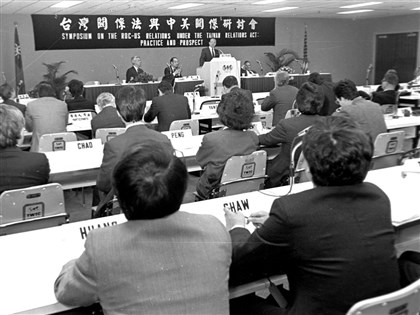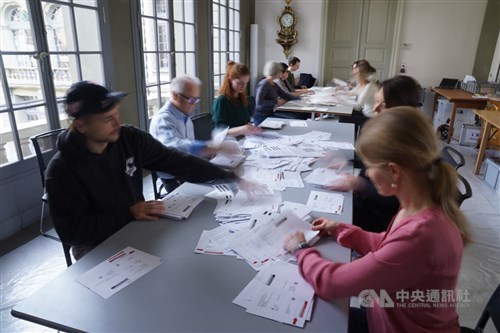FEATURE/35 years later, freedom of speech defender Nylon Cheng's legacy lives on
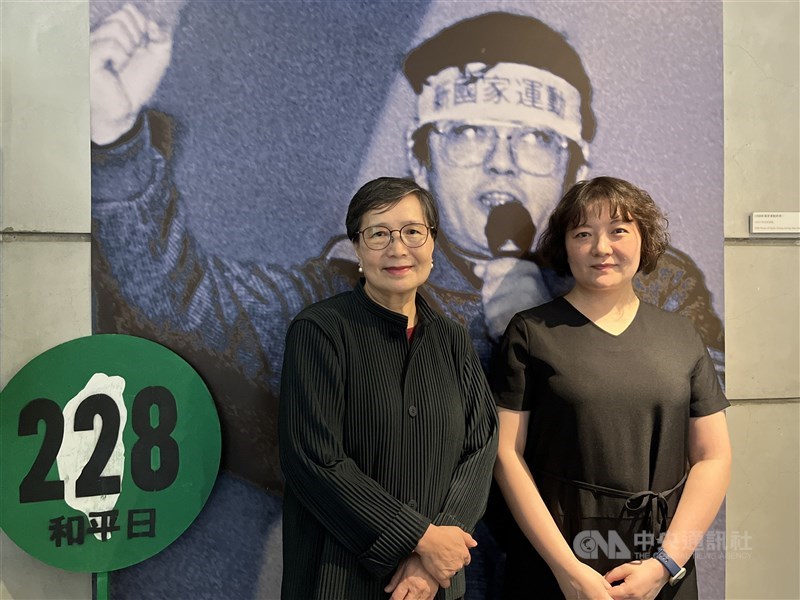
(This story includes discussion of suicide and a graphic photo. If you are experiencing suicidal thoughts, please call the 1925 or 1995 hotlines in Taiwan or such services in other countries for help.)
By Sunny Lai, CNA staff reporter
Nestled near the bustling Minquan East Road in Songshan District, Liberty Lane exudes tranquility, typical of Taipei's alleys.
Yet, 35 years ago today, the lane was teeming with police during an attempted arrest that tragically ended in the self-immolation of Nylon Cheng (鄭南榕).
Seen from outside, the brown stains on the rusty metal grilles of the far-right window on the third floor of No. 11, Liberty Lane, are all that remain of the fire ignited by Cheng, editor-in-chief of Freedom Era Weekly, on April 7, 1989 -- a date later commemorated as Freedom of Speech Day in Taiwan, first celebrated in 2017.
Freedom of speech defender
In 1984, three years before the end of the 38-year martial law period in Taiwan, Cheng founded the "Tangwai" (outside-the-party) magazine Freedom Era Weekly to "fight for 100 percent freedom."
Despite suppression from the then-Kuomintang (KMT) government, Freedom Era Weekly served as a vital platform for dissent, persistently advocating for political freedom and free speech, and published a total of 302 issues over five years and eight months.
After having organized a number of political events, Cheng published a "Draft of the Republic of Taiwan Constitution" written by pro-independence advocate Koh Se-kai (許世楷) on Dec. 10, 1988, making him a thorn in the side of the government that officially opposed independence.
Better burned out than rusted out
In January 1989, two years after the martial law was lifted, Cheng received a summons from the Taiwan High Court, accusing him of sedition for violating existing anti-sedition laws. Rejecting the charges, he confined himself to the magazine's office, declaring, "The KMT cannot arrest me, they can only seize my corpse."
However, 71 days into Cheng's self-confinement, a team of 200 police and firefighters -- led by then-police officer and current New Taipei mayor Hou Yu-ih (侯友宜) -- attempted to take him into custody.
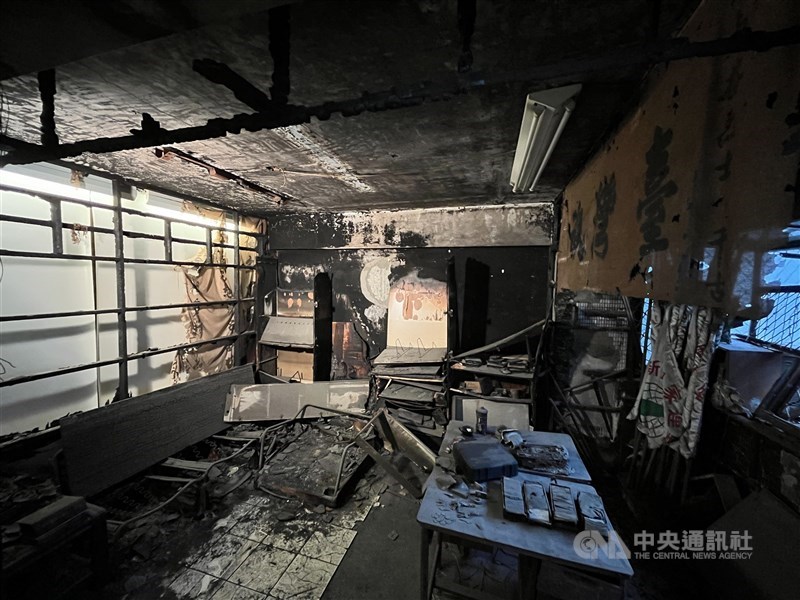
After asking everyone in the office to leave, Cheng locked himself in the editor-in-chief's office. As the police entered the premises, the 41-year-old then self-immolated by igniting gasoline he had stored in the office.
His sacrifice contributed to the successive repeal of laws restricting free speech, and 34 years after his passing, Taiwan was ranked 12th among 165 jurisdictions worldwide and first in Asia in the 2023 Human Freedom Index.
After three and a half decades, what remains?
The former office of Freedom Era Weekly became the Nylon Cheng Memorial Museum in 1999, and inside the 12-square-meter editor-in-chief's office, charred remnants of items from the past are preserved, such as the camp bed he slept on during the 71-day self-confinement.
"I cried and felt sad because it used to be such a clean and beautiful place and suddenly it was all dark and smelt of burning," said Cheng Chu-mei (鄭竹梅), who still remembers the first time coming back to the office after her father died.
As chairperson of the Nylon Cheng Liberty Foundation, she told CNA that she once had a period of forgetting her father, with only scattered fragments of childhood memories.
"Every month, he would bring back Doraemon comics from the newsstand, and then we would read them together in the living room at home," the 44-year-old said.
"However, these memories were fading, and to the point where I felt I might forget him -- that's why I started to search for him [in the records] and try to understand why he did this [self-immolation]," she added.
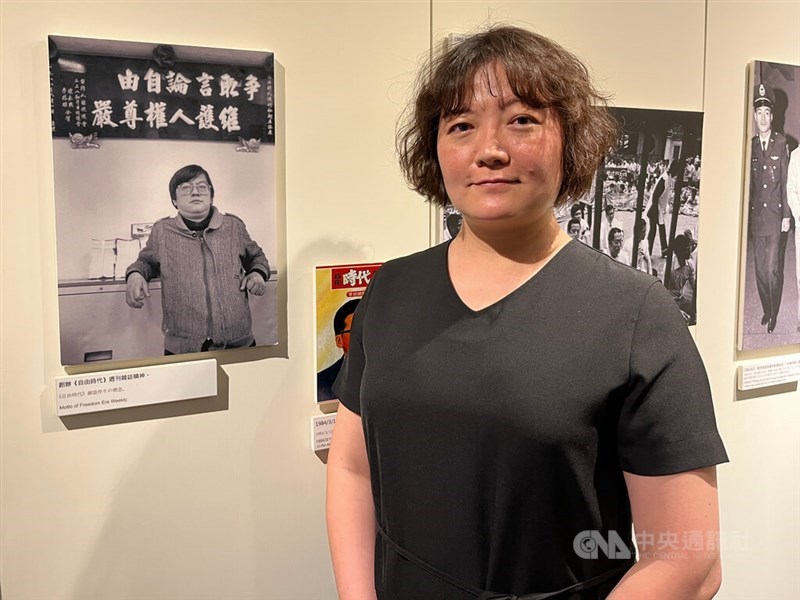
After reading through box after box of documents, she came across a page of her father's diary, which was written before his 35th birthday as the draft of a letter to his friend who might have emigrated to the United States.
"He told his friend that as a young father in Taiwan, he didn't want his child, or any of the next generation, to live in an environment under martial law," she said.
"Now I realize that his heart was full of love," she said, adding that her father loved not only his daughter, but also "others of the same generation as his daughter."
Nothing but love
Nylon Cheng's widow, Yeh Chu-lan (葉菊蘭), shared similar thoughts with her daughter.
"All he had was love, so much love, he loved his wife, his child, his colleagues... and his society," the 75-year-old said, adding that her husband expressed his love not through words but actions.
Having shifted her career path from marketing and advertising to politics after her husband's passing, Yeh -- a senior advisor to the President -- said that her late husband not only respected her, but also consistently encouraged her to pursue her passions.
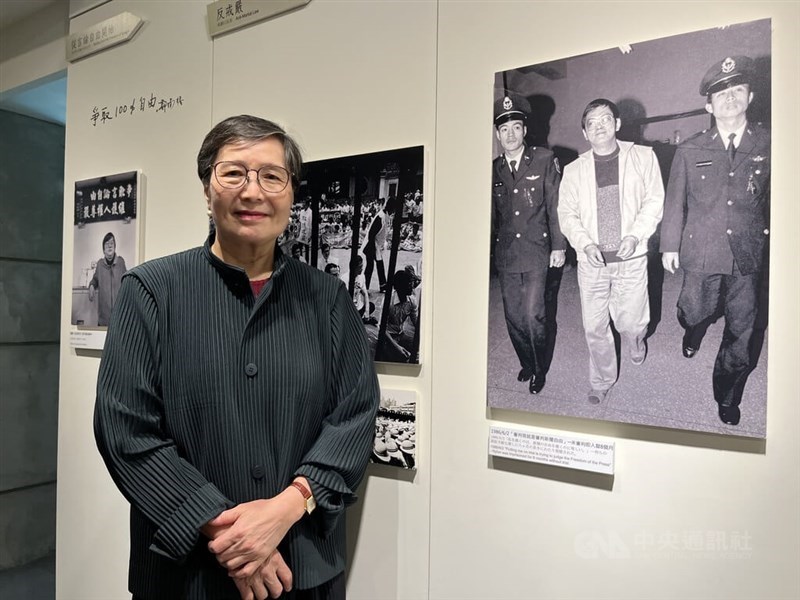
Along with a calm and steady personality that always thought carefully before taking action, Nylon Cheng won Yeh's heart -- even to this day.
"I'd say that you went too far by leaving me and our daughter so soon. But I'd also say that if I had another chance, I would give anything to fall in love with you again," Yeh said.
"I'd also say thank you, because if not for you, Taiwan wouldn't be this good now," she added.
In the past seven years, Taiwan has consistently secured a top-20 position in the Human Freedom Index and ranked first in Asia in both 2022 and 2023.
Yeh said that she had a million reasons not to want her husband to sacrifice his life for an ideal; but as a Taiwanese, she sees him as a heroic figure worthy of being commemorated by history.
"He was the first to strive for independence with his life, the first to strive for freedom of speech with his life," she noted.
The immortal spirit
Recalling the days of their childhood over half a century ago in their hometown in Yilan County, Cheng Tsing-hua (鄭清華) -- the youngest brother of Nylon Cheng -- fondly reminisces about the times spent with his three elder brothers.
"In the summer, the four of us used to ride bicycles for an hour from home to the riverside; then, we camped there, barbecued, and played in the water," the 70-year-old said of a good memory.
But he mentioned that it was not that much fun anymore when the brothers had grown up, and at times, Nylon Cheng would become quite serious.
"Two years before his death, while the two of us were walking together on the street... he brought up the student movement in South Korea -- at that time, many Korean students resorted to self-immolation as a last-ditch protest.
"He said that if Taiwan's society continued to grapple with substantial changes, someone would inevitably resort to such extreme action," Cheng Tsing-hua noted.
"He added, 'This kind of thing should be done by oneself; one shouldn't let others do it,'" he recalled.
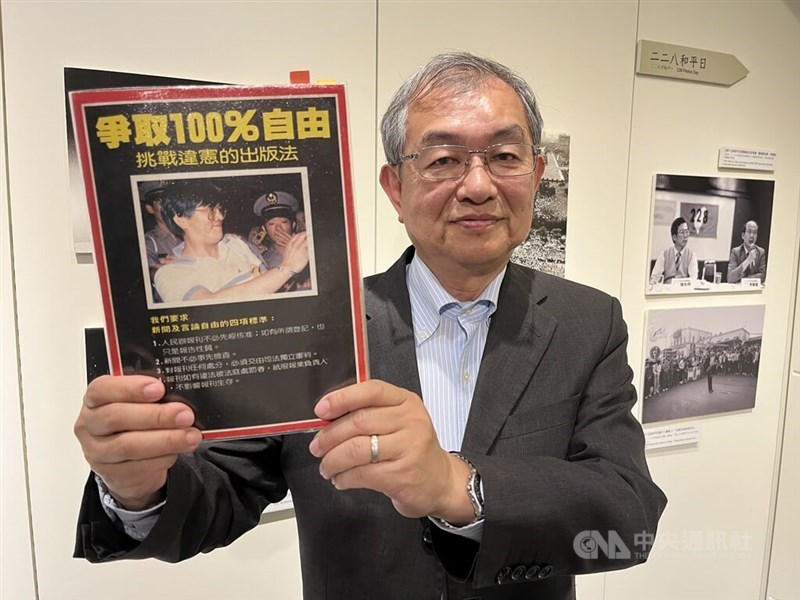
The board member of Amnesty International Taiwan sees his big brother's death as a calculated action rather than a spontaneous one: "Once he made a decision, you couldn't hold him back."
When asked about Nylon Cheng's most valuable ideologies, he referred to his brother's "fight for 100 percent freedom" and advocacy for Taiwan's independence as the ideas most worthy of promotion to others.
"The key point is the action of advocacy... you are free to advocate what you want, and that's freedom," he said.
Enditem/AW/kb
Related News
April 7: Taiwan's progress in freedom of speech faces new challenges
April 6: Lai vows to 'safeguard Taiwan's sovereignty' as he remembers late activist
![Taiwan Relations Act at 45: Still a cornerstone of bilateral ties]() Taiwan Relations Act at 45: Still a cornerstone of bilateral tiesIn January 1979, a young diplomat officially joined the Republic of China's diplomatic corps at the most challenging time in the country's relationship with its strongest ally, the United States.04/06/2024 03:57 PM
Taiwan Relations Act at 45: Still a cornerstone of bilateral tiesIn January 1979, a young diplomat officially joined the Republic of China's diplomatic corps at the most challenging time in the country's relationship with its strongest ally, the United States.04/06/2024 03:57 PM![Voting age: Taiwan stalls at 20 as Switzerland debates 16]() Voting age: Taiwan stalls at 20 as Switzerland debates 16Efforts to lower Taiwan's voting age from 20 to 18, in line with over 100 countries worldwide, have lasted for almost two decades without success.04/01/2024 07:27 PM
Voting age: Taiwan stalls at 20 as Switzerland debates 16Efforts to lower Taiwan's voting age from 20 to 18, in line with over 100 countries worldwide, have lasted for almost two decades without success.04/01/2024 07:27 PM!['We vote on everything': Direct democracy in Switzerland]() 'We vote on everything': Direct democracy in SwitzerlandA Referendum Act was first introduced to Taiwan in 2003, but it was not until it was revised in 2018 to lower the thresholds needed to bring an initiative to a vote that Taiwanese citizens were more often called upon to vote.04/01/2024 07:26 PM
'We vote on everything': Direct democracy in SwitzerlandA Referendum Act was first introduced to Taiwan in 2003, but it was not until it was revised in 2018 to lower the thresholds needed to bring an initiative to a vote that Taiwanese citizens were more often called upon to vote.04/01/2024 07:26 PM
- Society
Thousands of Muslims gather across Taiwan for Eid al-Fitr prayers
04/10/2024 05:13 PM - Politics
New Cabinet to respond to domestic, global challenges: Lai
04/10/2024 04:55 PM - Society
Electronic pet ID card launched by agriculture ministry
04/10/2024 04:51 PM - Business
U.S. dollar closes lower on Taipei forex market
04/10/2024 04:11 PM - Business
TSMC reports highest sales for Q1
04/10/2024 03:52 PM
